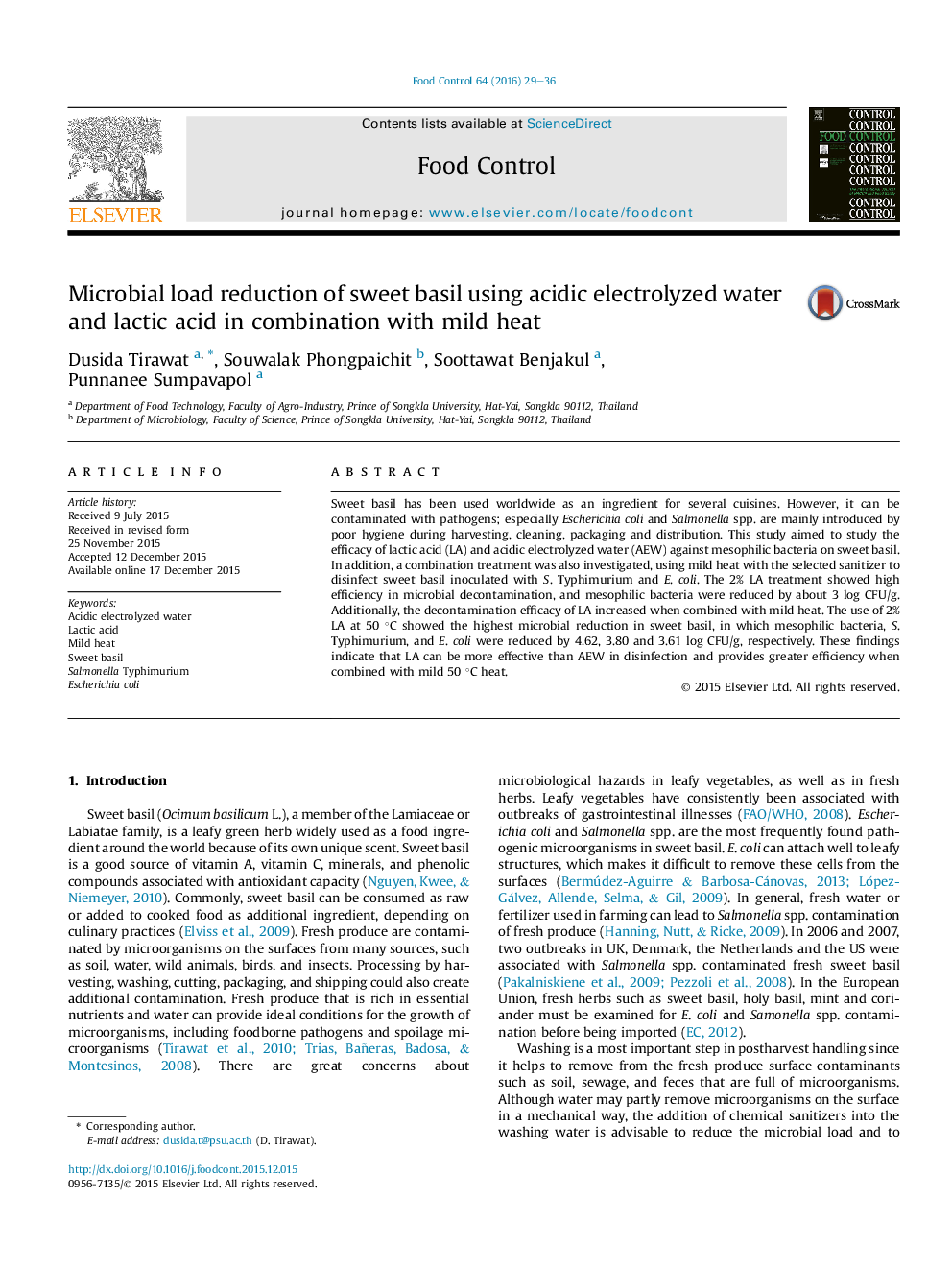| Article ID | Journal | Published Year | Pages | File Type |
|---|---|---|---|---|
| 6390154 | Food Control | 2016 | 8 Pages |
Abstract
Sweet basil has been used worldwide as an ingredient for several cuisines. However, it can be contaminated with pathogens; especially Escherichia coli and Salmonella spp. are mainly introduced by poor hygiene during harvesting, cleaning, packaging and distribution. This study aimed to study the efficacy of lactic acid (LA) and acidic electrolyzed water (AEW) against mesophilic bacteria on sweet basil. In addition, a combination treatment was also investigated, using mild heat with the selected sanitizer to disinfect sweet basil inoculated with S. Typhimurium and E. coli. The 2% LA treatment showed high efficiency in microbial decontamination, and mesophilic bacteria were reduced by about 3 log CFU/g. Additionally, the decontamination efficacy of LA increased when combined with mild heat. The use of 2% LA at 50 °C showed the highest microbial reduction in sweet basil, in which mesophilic bacteria, S. Typhimurium, and E. coli were reduced by 4.62, 3.80 and 3.61 log CFU/g, respectively. These findings indicate that LA can be more effective than AEW in disinfection and provides greater efficiency when combined with mild 50 °C heat.
Related Topics
Life Sciences
Agricultural and Biological Sciences
Food Science
Authors
Dusida Tirawat, Souwalak Phongpaichit, Soottawat Benjakul, Punnanee Sumpavapol,
